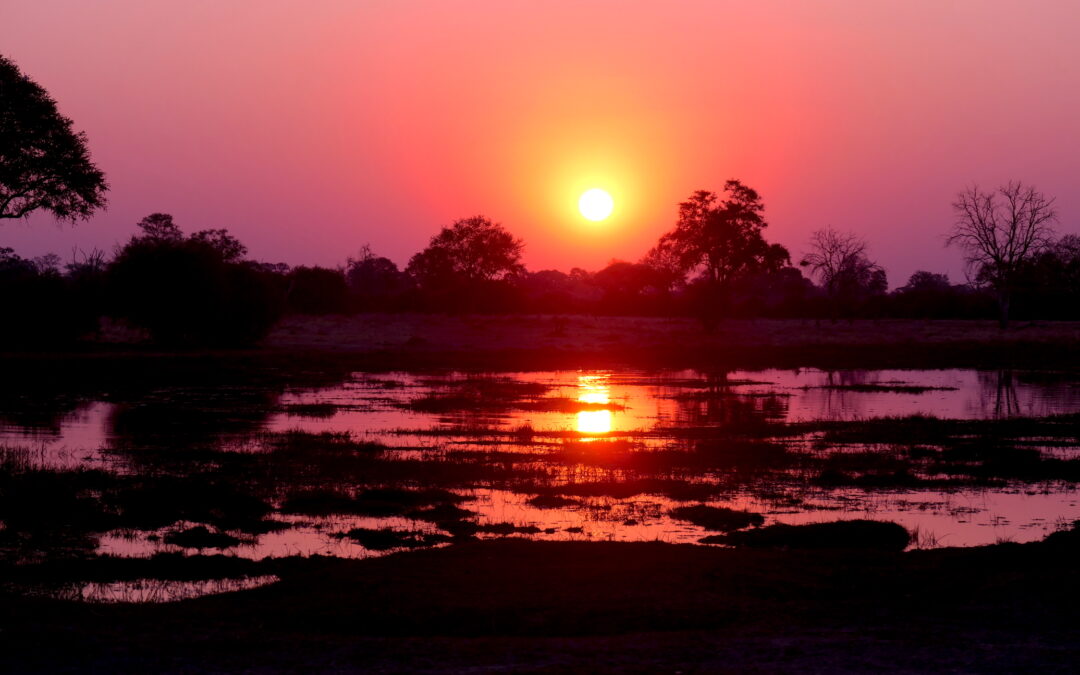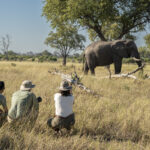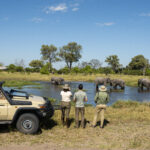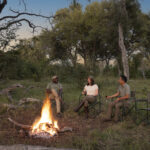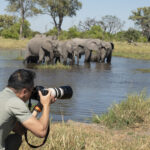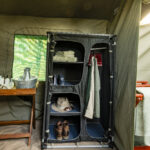Out of dozens, if not hundreds, of safaris, what’s the Brave Africa difference? What makes us stand out and why should you choose to join us on your first, second, third, or hundredth safari? It’s all about our all-day safari experience compared to the traditional African safari experience!
The All-Day Safari Experience
Guests go on a Botswana safari for one reason only: to see Africa’s many amazing animals. They want to go home with incredible photos, unbelievable videos, and memories that will last a lifetime.
That’s why, at Brave Africa, our number one priority is to ensure that you have an unforgettable all-day safari experience.
To make that possible, we take our guests on all-day game drives. This increases your possibility of seeing something astonishing by keeping you out of camp and in the Bush as long as possible—after all, you have a 0% possibility of an amazing animal sighting from inside your tent.
12 to 13 hours in the Bush instead of 6 to 7 hours
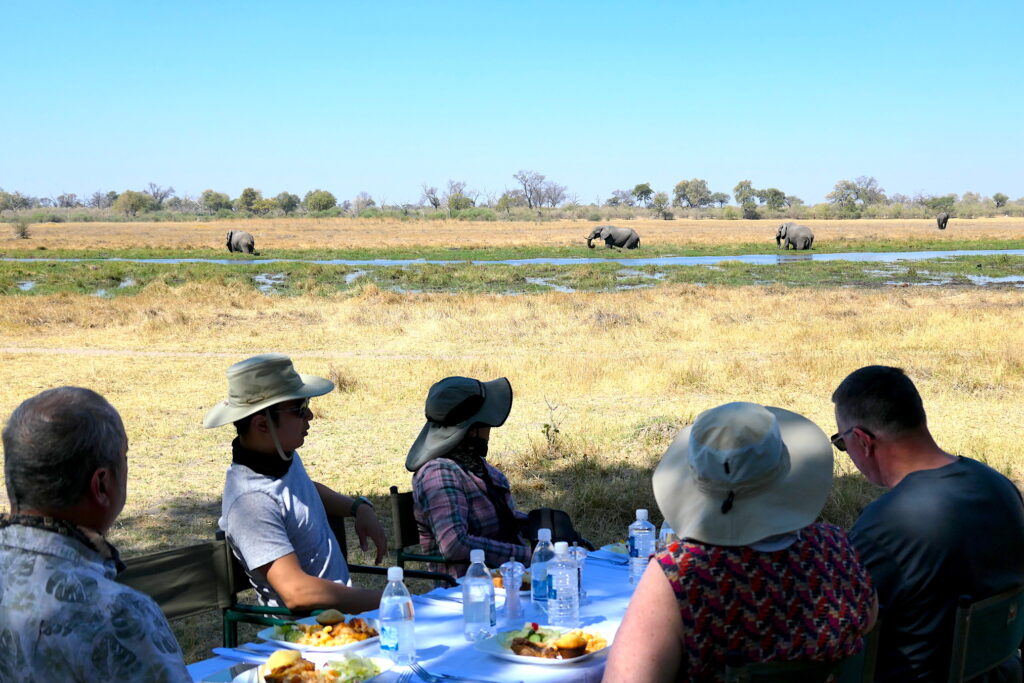
Lunch in the Bush means you get to choose amazing views like this one.
At Brave Africa, you get almost double the time in the Bush as you enjoy on a traditional safari.
On our all-day game drives, you head out of camp at sunrise—between 5:30 am and 6:30 am—and you don’t come back until sunset, or slightly after (6:00 pm – 7:00 pm). In total, you get 12 to 13 hours in the Bush every single day you’re on an all-day safari with Brave Africa.
On a traditional African safari, you have 3 to 4 hours on your morning game drive—from sunrise until around 10:00 am. After that, you’re back at camp for almost 6 hours for lunch and an afternoon nap. Then, you’re finally back out in the Bush at 4:00 pm until sunset for another 2 to 3 hours on a game drive.
That’s just 6 to 7 hours in the Bush with the other 6 hours spent at camp.
Cover more ground instead of being stuck near camp.
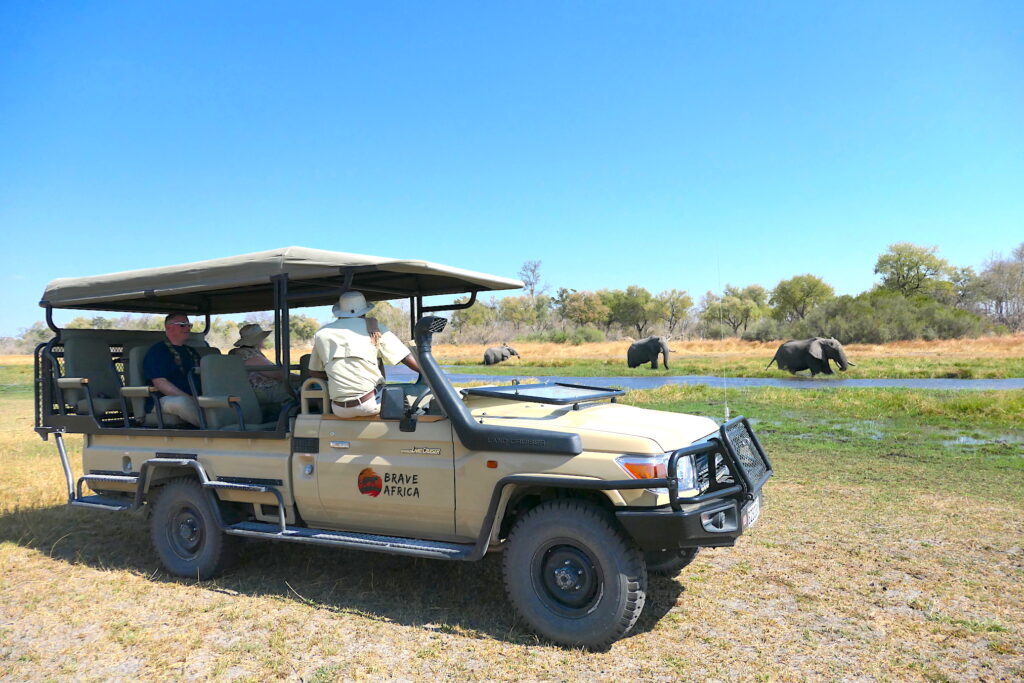
Your Brave Africa safari vehicle can travel almost 6 hours in one direction before having to turn around, which means you can really explore the bush.
Being out on our all-day game drives also means that your Brave Africa car can travel long distances. Since we don’t have to be back at camp until evening, we can really explore the area, following the animals where they go or even just to enjoy a change of scenery.
However, because traditional safaris require you to be back at camp within a few hours, your area of travel is highly limited. You can’t explore too far from your home base or you won’t make it back for lunch.
A pace you control instead of a set schedule.
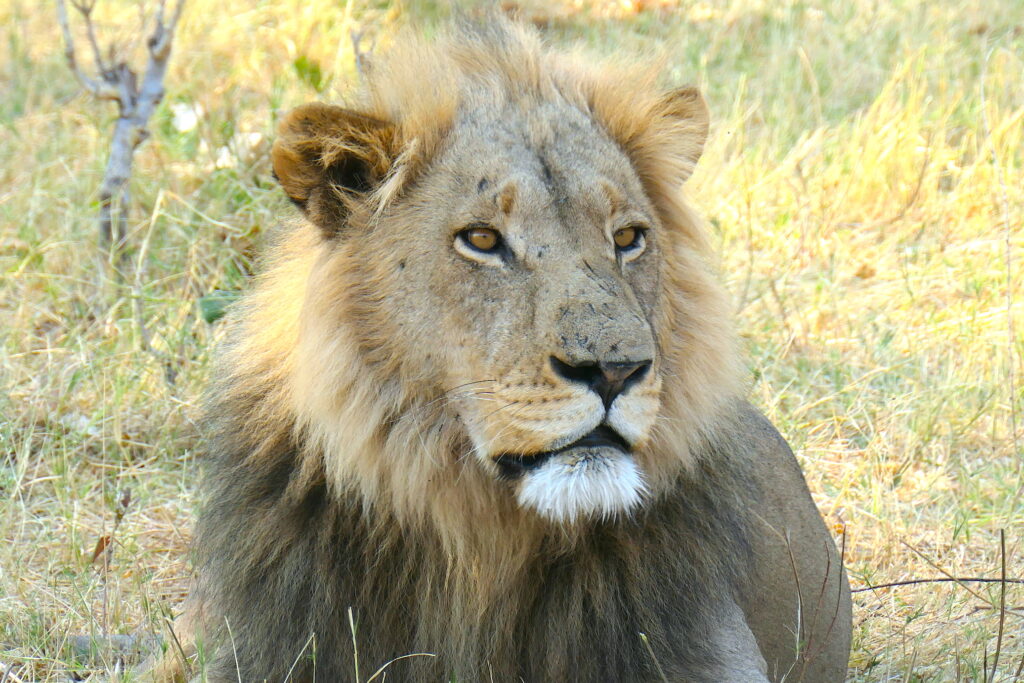
If you are enjoying an incredible sighting of a male lion, you don’t have to leave because you’re on a schedule. You can stay as long as you want.
Twelve to 13 hours in the Bush every day doesn’t mean you never have a chance to breathe or relax. Instead, it means the Bush and the animals help decide your day instead of trying to force nature to conform to our schedule.
So, if your game drive is really packed full of animals, you can put off your rest times until there’s a natural break. However, if the day is slow, you can rest early and give more time to your afternoon. Whenever you’re ready for a break, your guide will find a gorgeous spot in the bush—under some shade—where you can rest, relax, eat, drink, and enjoy the beautiful scenery.
On a traditional African safari, your day is scheduled for you. Yes, if you have an incredible sighting you can stay out longer, but there is always time pressure to get back to camp for lunch. Your schedule is controlled by the camp and not by nature, which can make you feel a little more like you’re in a theme park instead of on a Botswana safari.
Why Do You Want All-Day Game Drives?
So, why are all-day game drives what you want when you go on safari?
- Sometimes during the heat of the day—from 10 am until 3 pm—is the best time to see animals. It was during these hours that on one all-day game drive our guests and team ran into a cheetah hanging out and watching some warthogs.
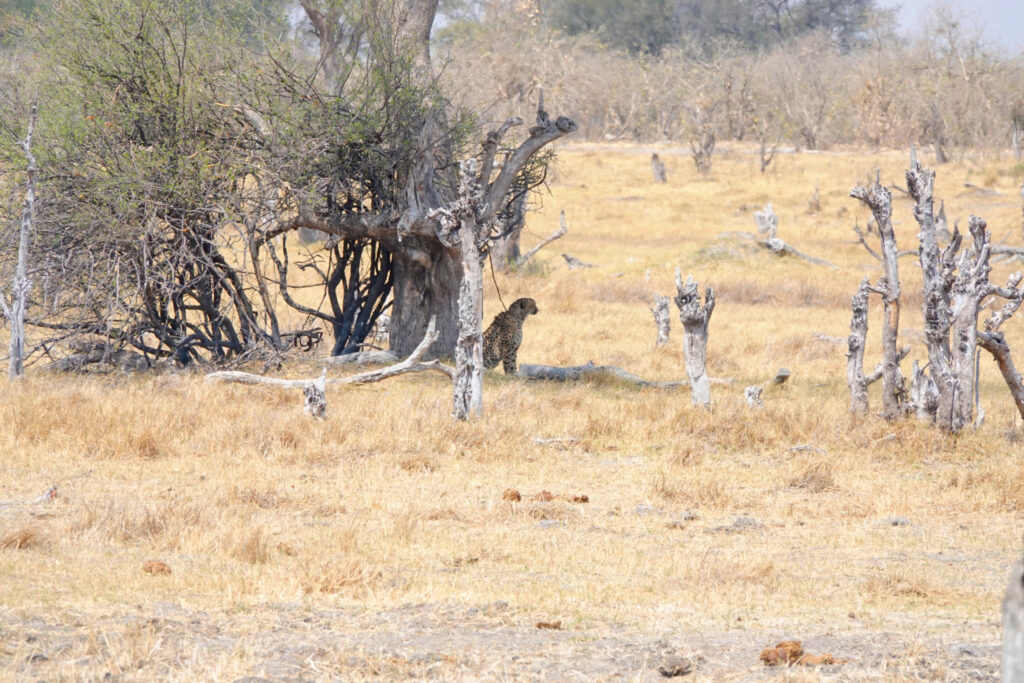
We saw this cheetah around 1 pm during an all-day game drive.
- Botswana is a desert. It’s HOT, especially in the middle of the day. It can easily reach over 40 degrees (C)—over 100 degrees (F)—and that’s hot no matter who you are or where you’re from. Would you rather be roasting in your tent in the middle of the day—few if any camps or lodges in the Bush offer air conditioning in your tent? Or would you rather enjoy the natural air conditioning offered by a moving, open-air vehicle and the chance to see incredible animals?
- A Botswana safari is not cheap. If you’re paying thousands of dollars do you want to pay for an all-day safari or a traditional African safari where you spend half of your time back at camp? You’re basically paying to take a nap instead of paying to spend time with the animals.

